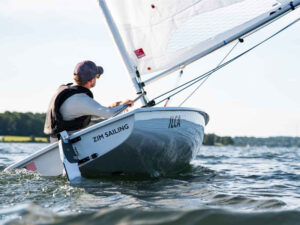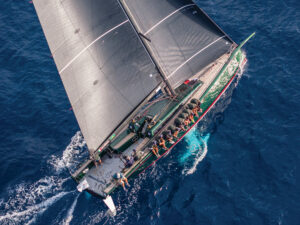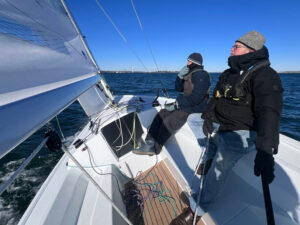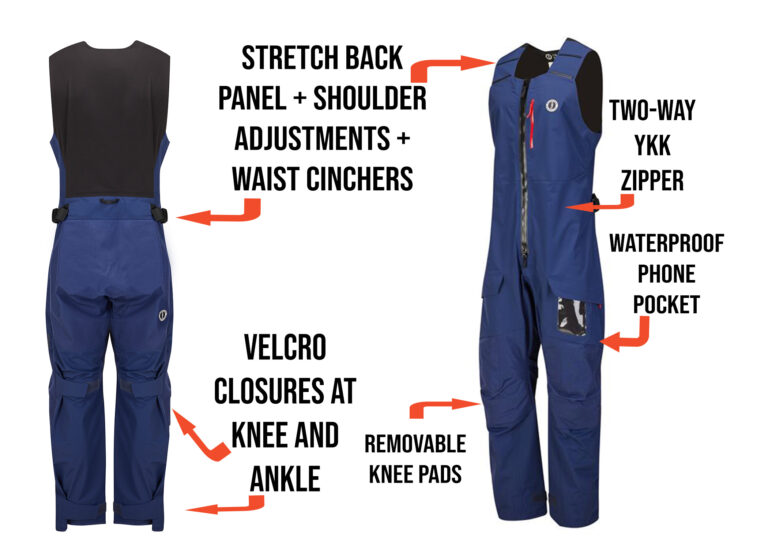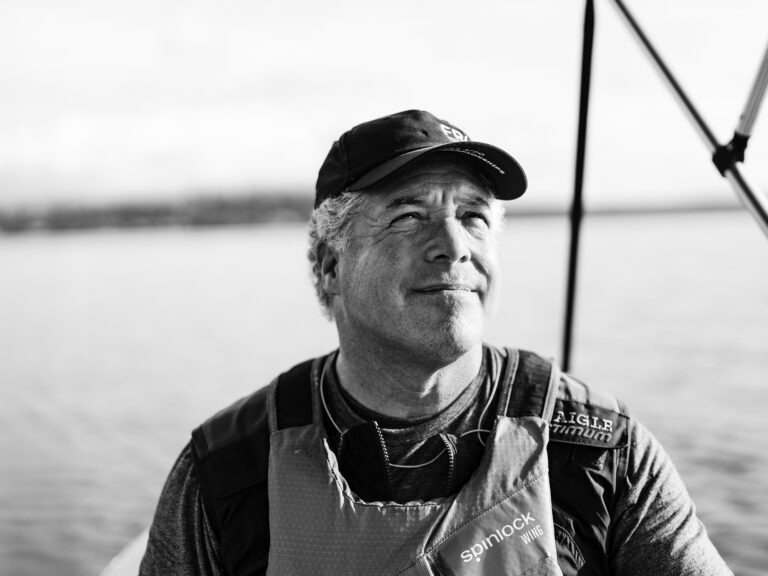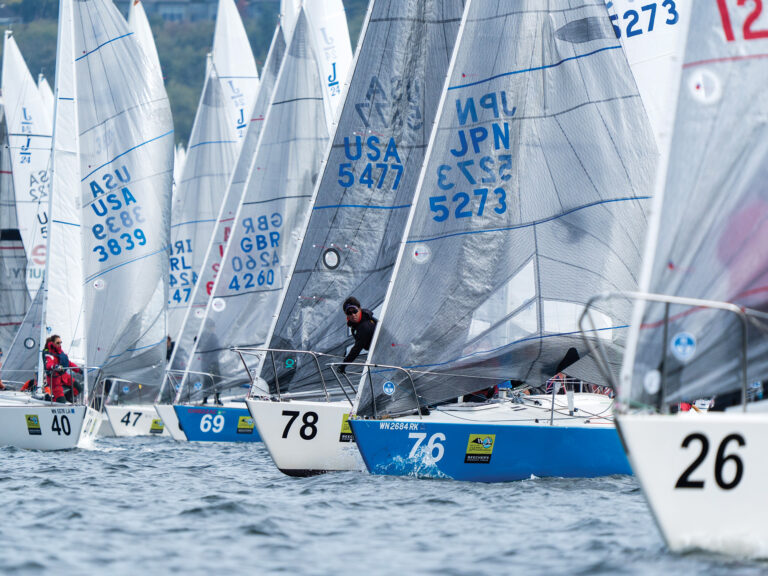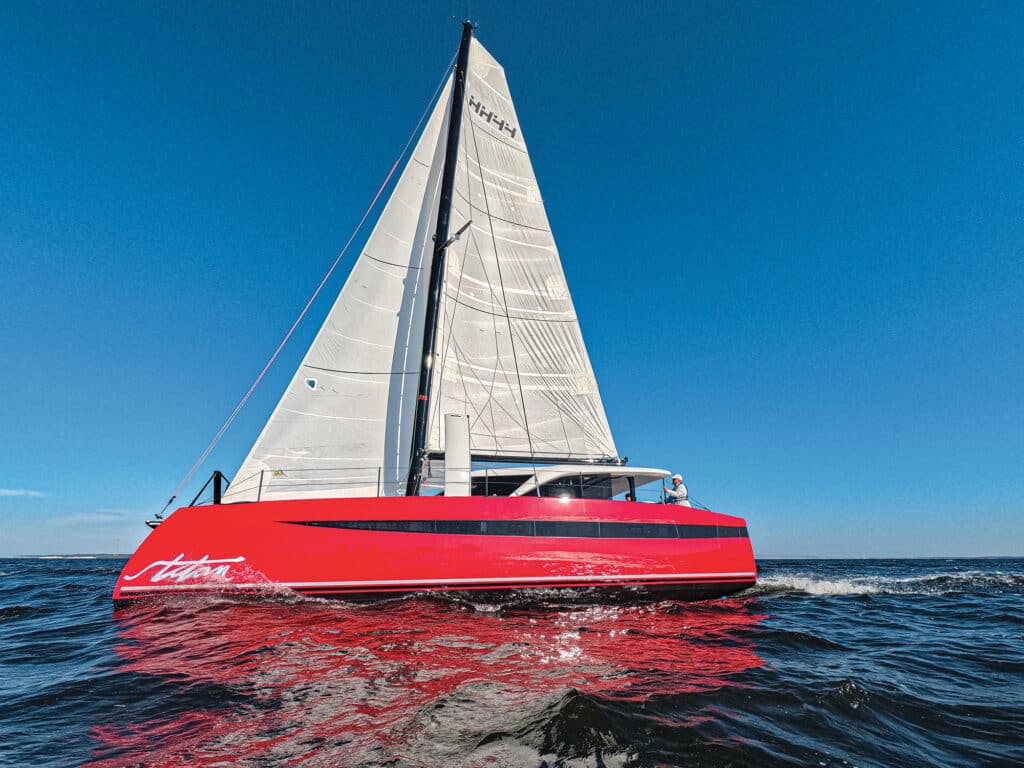
On a cool late-October morning in Annapolis, Maryland, Sailing World’s Boat of the Year judges stepped on board the gleaming red HH44 built by the Hudson Yacht Group in China. With them for the test sail was HH Catamarans president Seth Hynes and commissioning skipper Chris Bailet, who had tuned the rig and bent on the boat’s Dacron delivery sails. (The race sails were delayed in shipping.) It was their first time sailing the boat too, and like the judges, they were eager to see what it could do.
As the crew slipped dock lines and motored away in silence, the boat’s twin 10-kilowatt electric engines propelled the sleek catamaran through the mooring field in silence. If not for the sound of water gurgling from the transoms and the apparent wind blowing across the foredeck, the judges could barely tell they were underway.
The mainsail was then carefully hoisted inside the lazy jacks, and the halyard held firm with an innovative Karver KJ cone (a conical rope-holding device that acts like a restricter). They bore away and unfurled the non-overlapping jib, which snapped full, and the boat immediately accelerated.
“Once we got going, it was 5, 6, 7 knots and then—boom—we’re right up to 10,” Stewart says. And with that they were laying tracks all over the Chesapeake Bay, making good pace on all points of sail, even without a reaching sail to deploy. (That too was stuck in transit.)
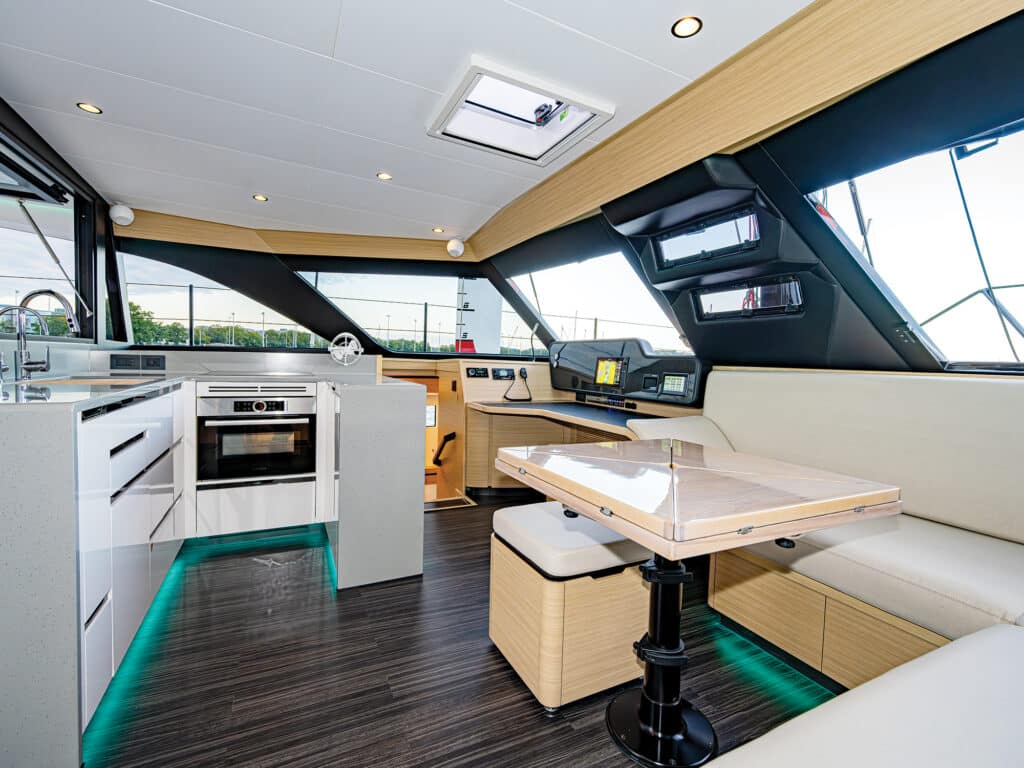
After two hours of straight-lining, tacking, jibing, and enjoying the comforts of the interior in a 10- to 15-knot southerly and sharp Chesapeake chop, I extracted the judges from the boat and asked, “So?”
“Boat of the Year,” was veteran Boat of the Year judge Chuck Allen’s immediate response. “That thing is wicked.”
Greg Stewart and Mike Ingham confirmed with nods of approval and big grins. There was no need to debate any further: The HH44 had earned the first award of what will be more to come. This $2 million crossover catamaran is the performance sailor’s retirement race boat. [Editor’s note: The judges’ estimated price was based on an expected racing inventory and associated hardware, but according to HH Catamarans, the new 2024 pricing is as follows: The HH44-OC will start at $995K and is approximately $1.3m fully optioned with EcoDrive and sails). The HH44-SC will start at $1.45m and be approximately $1.6 million fully optioned with EcoDrive and sails.]
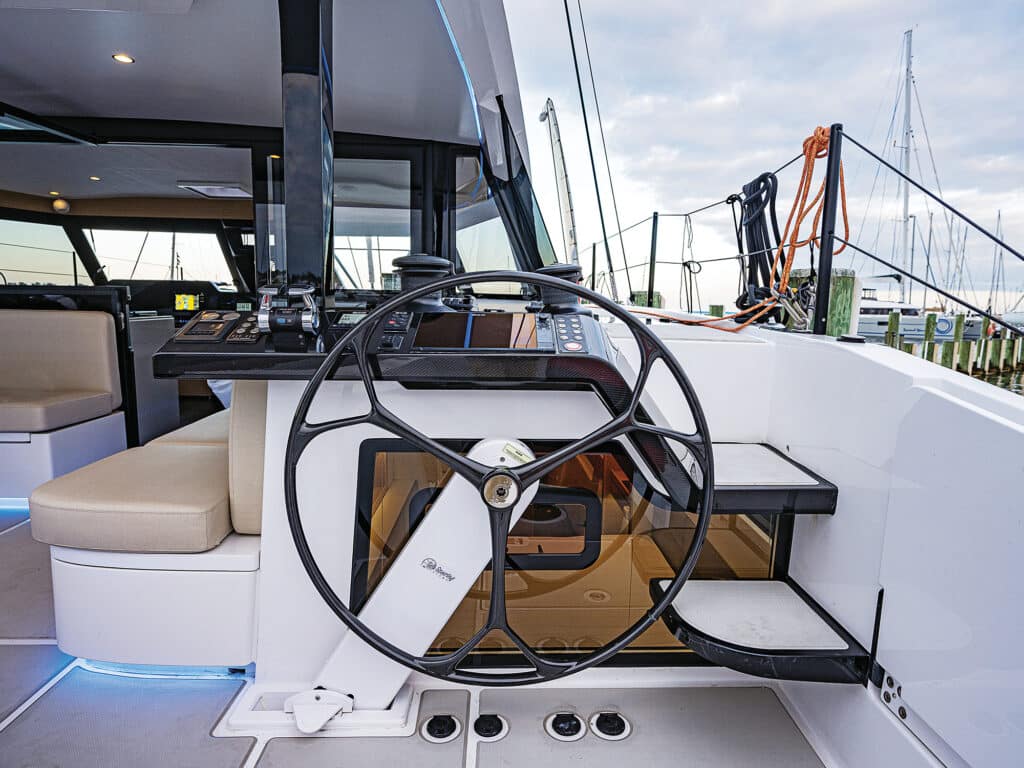
With a stated 37 of these 44-footers on order as of late October and a waiting list of three-plus years, HH44s will someday be scattered about in cruising grounds around the world, says Hynes. But it’s only a matter of time—and it will be sooner than later—before owners gather and give the racing thing a go.
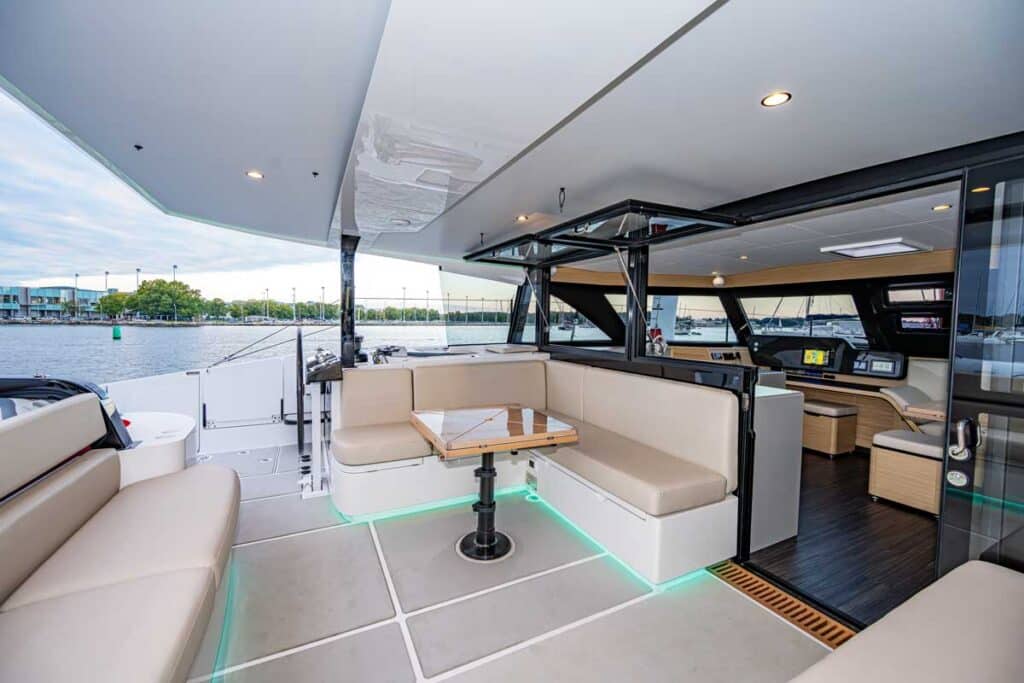
The HH44 is the smallest of the builder’s new lineage of hybrid-powered performance catamarans (there is a 52-footer in the works), so it is positioned as an entry point into big-cat sailing. This model does not require a professional captain or crew because simplicity and owner-operator considerations are prevalent throughout the boat, which is designed by young naval architect James Hakes, son of Paul Hakes, one of the company founders. Chinese entrepreneur Hudson Wang is the other “H” of HH Catamarans.
“It had a great groove upwind. The self-tacking jib was really easy to deal with, and for the mainsail it was just a few feet of ease on the mainsheet, adjust the powered traveler up to center, trim on and go.”
“James brought the hybrid idea with him, and Hudson was willing to take a risk and look at doing something kind of game-changing in the industry with our parallel-hybrid approach,” Hynes says. Morrelli & Melvin was intimately involved in every performance aspect of the boat, from the appendages to the final hull profile.
“It’s a diesel engine with a shaft drive, and then independent of that is an electric motor with a belt to the shaft, so they’re really independent of each other,” Hynes explains.
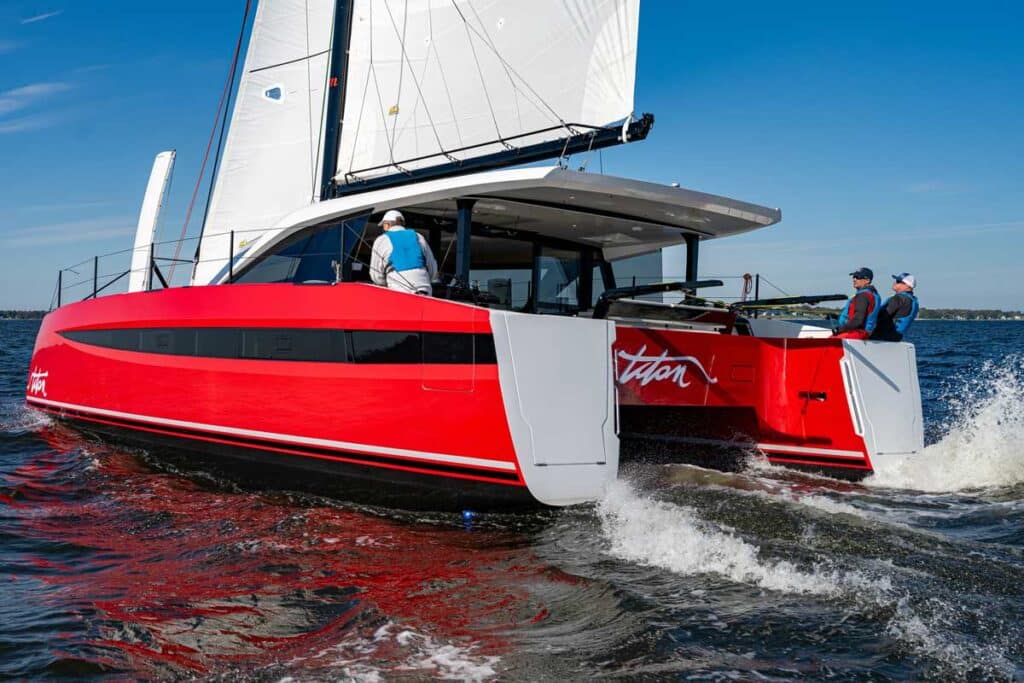
HH isn’t the first or only builder to use the system from Hybrid Marine, but Hake’s approach to the boat overall is inextricably linked to maximizing solar coverage, which means a clean roof and placing the helm stations down in the cockpit. To address the known challenges of cockpit steering in such catamarans, the steering wheels pivot inboard and outboard to allow for better forward visibility and communication with anyone on the foredeck dealing with sails, anchors or dock lines.
Placing the steering stations in the cockpit eliminates the tiered wedding-cake look of most big catamarans these days. More importantly, doing so allows them to lower the sail plan. “That allows for more sail area and less stress on the standing rigging,” Stewart says. “Plus, it looks so much better.”
There are 4,432 watts worth of solar panels piled onto the coach roof, which Hynes says has plenty of juice to get by off the grid, even in low-light conditions. “At full battery capacity, you can run the boat at full throttle using the two 10-kilowatt electric motors and get 7 knots of boatspeed for approximately two hours,” he says. “In light air, you can even keep your leeward electric motor running to build yourself some apparent wind. That’s what’s great about this system: You can sail quietly when no one else can sail at all.”
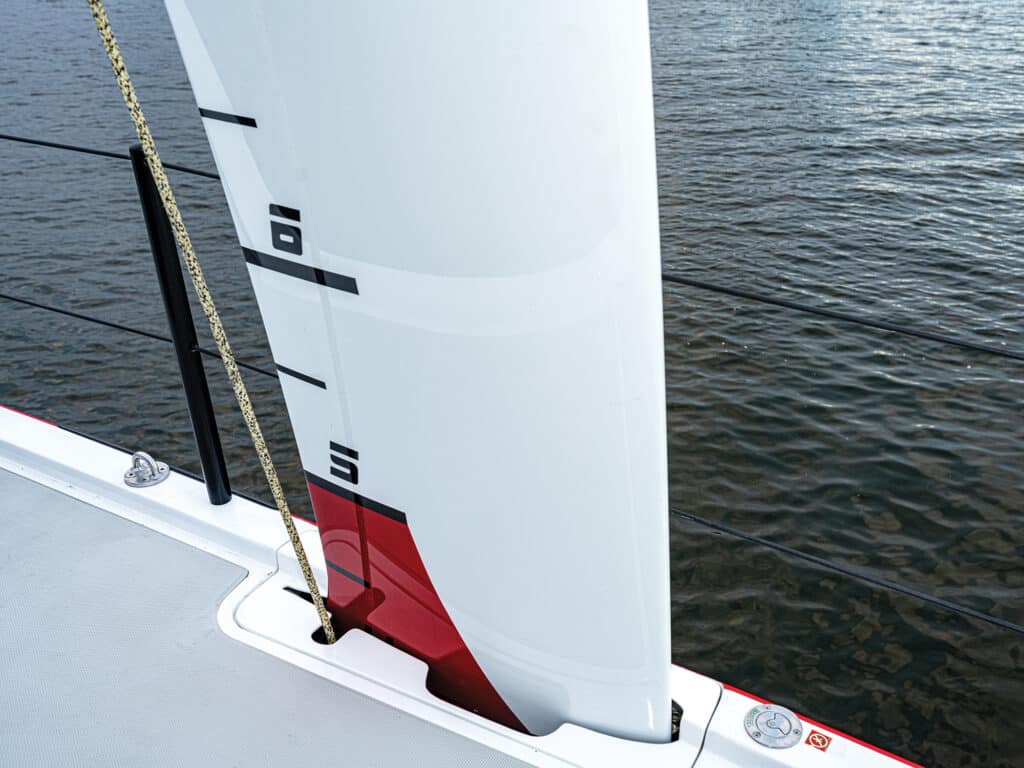
The port helm station is where a lot of the boathandling happens; there are powered halyard winches and a meticulous array of labeled jammers. Tails disappear into a deep trough forward of the pedestal. The wheels are sized just right, Stewart says. “Initially, I was steering from the weather wheel and I could see fine, and when I went to the leeward wheel, I could easily see the telltales. It had a great feel to the helm—light and responsive with no slop or tightness.”
In Allen’s sailing assessment of the HH44: “It had a great groove upwind. The self-tacking jib was really easy to deal with, and for the mainsail it was just a few feet of ease on the mainsheet, adjust the powered traveler up to center, trim on and go. There is some choreography to learn with the steering wheel, though. You have to move the wheel inboard to get better access to the sail and daggerboard controls during the tack. But once you’re done, you pop the wheel right back out to the outboard position. We didn’t have a screecher to really light it up downwind, but even with the Dacron jib and main, the boat took off. I was really impressed.”
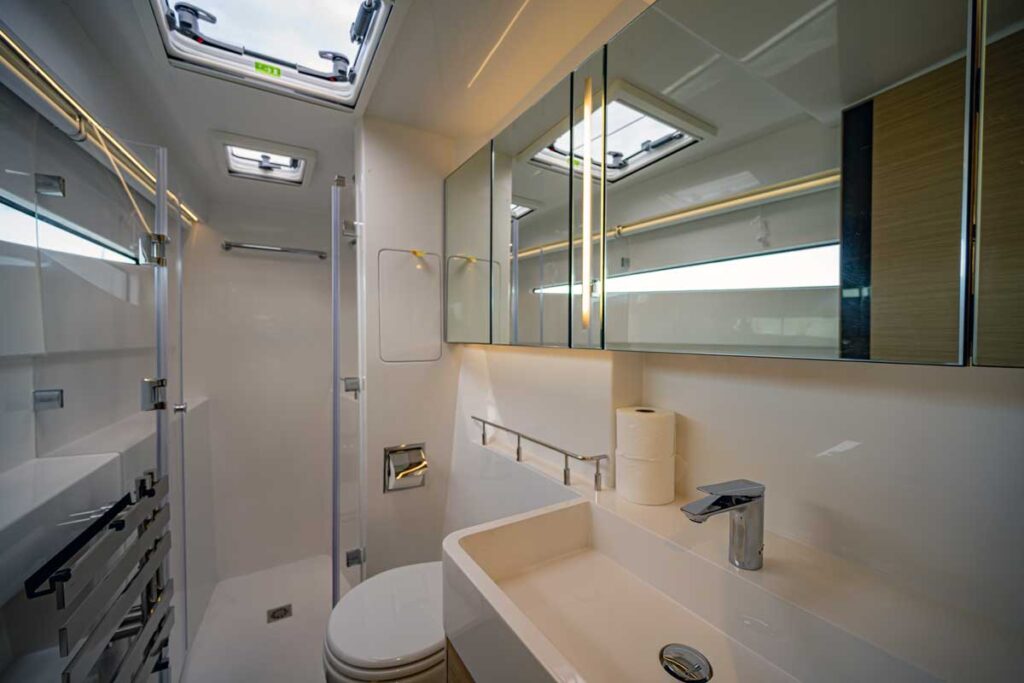
One wish for Stewart would be a sliver of a coach roof window for quick sail-trim checks, but he understood the priority of using every inch of solar-panel coverage.
Not having a sail-trim window wasn’t an issue for Ingham, however. “Most of the time, you’ll trim it to your best guess, take a step outboard and up the stairs right next to the wheel, and check yourself on the trim. It’s all push buttons anyway, so you’re not having to reload a winch or anything like that every time you make an adjustment.”
Even as the morning’s fresh breeze abated, the boat continued to perform beyond expectations, Stewart says. “As we got down to 5 knots of wind, the boat was still quick through the tacks. We didn’t have to back the jib at all, and it sailed at good angles upwind. I was impressed with how well it tacked, and how well it tracked with only one daggerboard down.”
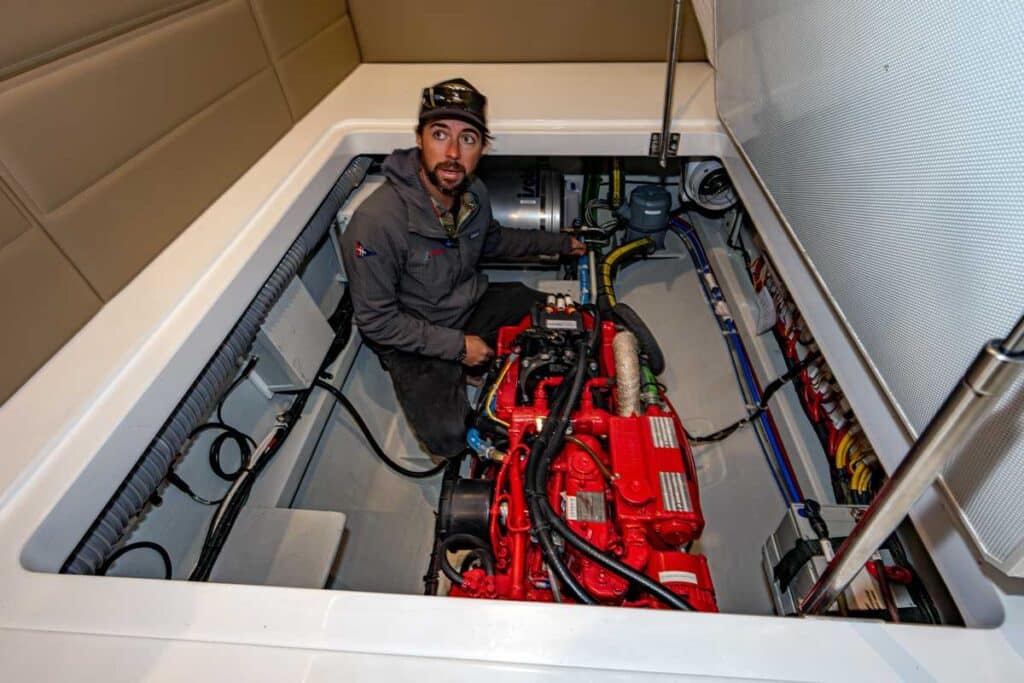
Stewart, a naval architect himself, also appreciated the boat’s modern styling and “sexy-looking profile,” especially the uncluttered interior. “It’s a nice departure from other similar-size catamarans,” he says. “I like the styling—it caught my eye the very first time I saw the rendering. The transom angle and the reverse bow give it nice aesthetics and the buoyancy you need. The curved boards worked well and are integrated nicely on with the boat. Overall, it’s a great-looking package, and it would be a lot of fun to do some races on.”
“We will definitely end up racing in the Caribbean and doing some fun events for owners,” Bailet says. “The cool thing about this boat is you can take a smaller crew of friends and race competitively, and it isn’t going to cost you $50,000 in paid crew and housing. You can race this boat with three or four people, no problem. Doublehandling is pretty easy too, but if you really wanted to go banging around the buoys, with this boat it would be easy.”

